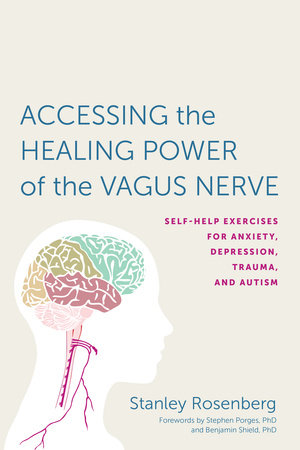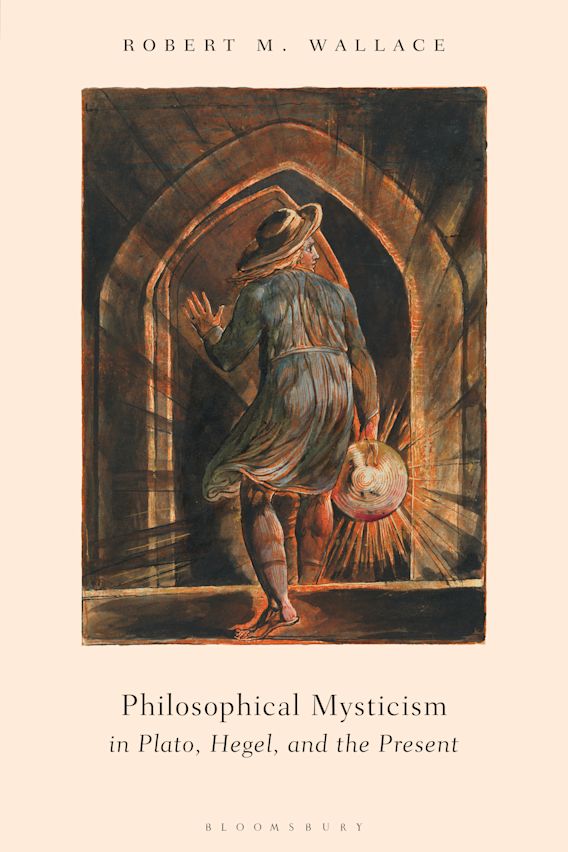Neuroscientist David Eagleman in Conversation with Sadhguru
By
David Eagleman — 2019
Watch neuroscientist and author, David Eagleman, in conversation with Sadhguru as they discuss a variety of subjects, ranging from different parts of the mind, the concept of time, quantum mechanics, religion, and meditation. See more...
FULL SUMMARY
Watch neuroscientist and author, David Eagleman, in conversation with Sadhguru as they discuss a variety of subjects, ranging from different parts of the mind, the concept of time, quantum mechanics, religion, and meditation. The conversation is laced with humor and incisive logic, and moves towards an interesting climax where David Eagleman acknowledges that science and mysticism meet at a certain point.
01:56:44 min
YOU MIGHT ALSO LIKE
CLEAR ALL
BY TOPIC
BY TEACHER
BY TYPE
FILTER

TOPIC
- Brain Health (14)
- Consciousness (13)
- Spiritual Life (11)
- Dementia (10)
- Christian Mysticism (9)
- Autoimmune Disease (8)
- Buddhism (8)
- Inner Life (8)
- Depression (7)
- Emotional and Mental Health (7)
- Memory (7)
- Neuroplasticity (7)
- The Divine (7)
- Altered States (6)
- Mindfulness (6)
- Neurodiversity (6)
- Psychedelic Research (6)
- Spiritual Awakening (6)
- Spiritual Quest (6)
- Trauma (6)
- Anxiety (5)
- Chronic Health Conditions (5)
- Connection with Nature (5)
- Neuropsychology (5)
- Polyvagal Theory (5)
- Spiritual Development (5)
- Synesthesia (5)
- Trauma Healing (5)
- Yoga (5)
- Black Well-Being (4)
- Child’s Trauma (4)
- Cognition (4)
- Comparing Belief Traditions (4)
- Illness and Injury (4)
- Mind-Body Connection (4)
- Perception (4)
- Prayer (4)
- Romantic Relationships (4)
- Self-Discovery (4)
- Spiritual Healing (4)
- Aging (3)
- Awareness (3)
- Child’s Emotional Growth (3)
- Christianity (3)
- Decision Making (3)
- Diet and Nutrition (3)
- Emotional Intelligence (EQ) (3)
- Empathy (3)
- God (3)
- Habit Formation (3)
- Happiness (3)
- Human Potential (3)
- Inflammation (3)
- Meditation (3)
- Mythology (3)
- Neoshamanism (3)
- Presence (3)
- Psychology (3)
- Relationship Challenges (3)
- Self-Realization (3)
- Spiritual Direction (3)
- Spiritual Growth (3)
- Stress (3)
- Suffering (3)
- Tibetan Buddhism (3)
- Well-Being (3)
- Women’s Well-Being (3)
- Autism (2)
- Caregiver Well-Being (2)
- Chanting (2)
- Chronic Anxiety (2)
- Clinical Depression (2)
- Compassion (2)
- Connection (2)
- Conscious Evolution (2)
- Death and Dying (2)
- Diamond Approach (2)
- Digital Life (2)
- Disconnection (2)
- Dreamwork (2)
- Dysfunctional Childhood (2)
- Ecospirituality (2)
- Ego Dissolution (2)
- Embodiment (2)
- Energy Healing (2)
- Enlightenment (2)
- Fear (2)
- Fellowship and Community (2)
- Finding Meaning (2)
- Goddess (2)
- Healing Approaches (2)
- Hinduism (2)
- Honoring Emotion (2)
- Identity (2)
- Imagination and Creativity (2)
- Incarceration (2)
- Inner Peace (2)
- Journaling (2)
- Judaism (2)
- Kabbalah (2)
- Ketamine (2)
- Kirtan Music (2)
- Love (2)
- LSD (2)
- Magick (2)
- Marriage (2)
- Mindfulness Practices (2)
- Non-Duality (2)
- Oneness (2)
- Parenting (2)
- Problem Solving (2)
- Self-Healing (2)
- Self-Reflection Practices (2)
- Shamanism (2)
- Sleep (2)
- Spirituality and Politics (2)
- Storytelling (2)
- Sufism (2)
- Taoism (2)
- Transcendent Experience (2)
- Transformation (2)
- Unity (2)
- Visions and Hallucinations (2)
- Western Astrology (2)
- Willpower (2)
- Zen Buddhism (2)
- Activism/Service (1)
- Addiction (1)
- Affirmations (1)
- Afterlife (1)
- Attachment Theory (1)
- Belonging (1)
- Biofeedback (1)
- Body Mapping (1)
- Breathwork (1)
- Building Character (1)
- Chakras (1)
- Changes in Libido (1)
- Child’s Challenging Behavior (1)
- Children’s Well-Being (1)
- Chronic Pain (1)
- Climate Change (1)
- Cognitive Psychology (1)
- Communication Skills (1)
- Community Healing (1)
- Compassion Meditation (1)
- Cross-Cultural Dynamics (1)
- Curiosity (1)
- Dark Night of the Soul (1)
- Death or Loss of a Loved One (1)
- Divorce and Breakup (1)
- DMT (1)
- Dowsing (1)
- Dream Analysis (1)
- Energy Balancing (1)
- Epigenetics (1)
- Exercise (1)
- Fate (1)
- Female Empowerment (1)
- Forest Bathing (1)
- Generosity (1)
- Gratitude (1)
- Guided Meditation (1)
- Guilt (1)
- Hatha Yoga (1)
- Healthy Eating (1)
- Hero’s Journey (1)
- Holism (1)
- Hypnosis (1)
- Infidelity (1)
- Inner Strengths (1)
- Insomnia (1)
- Integrative Medicine (1)
- Intention (1)
- Interdependence (1)
- Intimacy (1)
- Intuition (1)
- Islam (1)
- Kindness (1)
- Kundalini Yoga (1)
- Leadership (1)
- Learning Styles (1)
- Life Challenges (1)
- Life Force Energy (1)
- Living as an Empath (1)
- Living with Illness (1)
- Lovingkindness (1)
- Magic (1)
- Mantra Meditation (1)
- MDMA (1)
- Memoir (1)
- Midlife Crisis (1)
- Near-Death Experience (1)
- Nightmares (1)
- Nonviolence (1)
- Paganism (1)
- Past Lives and Reincarnation (1)
- Philosophical Approaches (1)
- Physical Health (1)
- Play (1)
- Positive Psychology (1)
- Positive Self-Talk (1)
- Pregnancy and Childbirth (1)
- Psilocybin (1)
- Psychedelic Journey (1)
- Psychedelic-Assisted Therapy (1)
- Psychoanalysis (1)
- Psychological Approaches (1)
- Psychology and Spirituality (1)
- Quantum Physics (1)
- Relationship with Time (1)
- Ritual (1)
- Rolfing (1)
- Sacred Geometry (1)
- Self-Development (1)
- Self-Pressure (1)
- Sex (1)
- Shame (1)
- Sleep Disorders (1)
- Social Justice (1)
- Social Media Addiction (1)
- Somatic Experiencing (1)
- Spiritual Crisis (1)
- Spirituality and Health (1)
- Tarot (1)
- Telepathy (1)
- Time Management (1)
- Transpersonal Psychology (1)
- Trauma-Informed Therapy (1)
- Visualization (1)
- Wicca (1)
- Witchcraft (1)
- Young Adult Well-Being (1)
FILTER

TEACHER
- Daniel Goleman (3)
- David Perlmutter (3)
- Luisah Teish (3)
- A. H. Almaas (2)
- David Eagleman (2)
- Erin Clabough (2)
- Hank Wesselman (2)
- Helen Fisher (2)
- Jean Houston (2)
- Jill Bolte Taylor (2)
- Krishna Das (2)
- Lisa Feldman Barrett (2)
- Pierre Teilhard de Chardin (2)
- Richard Davidson (2)
- Rick Hanson (2)
- Stan Tatkin (2)
- Adyashanti (1)
- Alan Watts (1)
- Anil Seth (1)
- Anna Lembke (1)
- Annie Hopper (1)
- Carl Jung (1)
- Christopher Penczak (1)
- Daniel Gilbert (1)
- Daniel J. Siegel (1)
- David Steindl-Rast (1)
- Diane Stein (1)
- Edgar Cayce (1)
- Fritjof Capra (1)
- Gabor Maté (1)
- Howard Gardner (1)
- Howard Thurman (1)
- J. Krishnamurti (1)
- Jacqui Lewis (1)
- Jerry M. Ruhl (1)
- Joanna Macy (1)
- John C. Parkin (1)
- Joseph Campbell (1)
- Judith Orloff (1)
- Kabir Helminski (1)
- Larry Dossey (1)
- Leah Guy (1)
- Louise Hay (1)
- Martin Seligman (1)
- Matthieu Ricard (1)
- Meher Baba (1)
- Michio Kaku (1)
- Mirabai Starr (1)
- Norman Fischer (1)
- Oliver Sacks (1)
- Peter A. Levine (1)
- Philip Goldberg (1)
- Rami Shapiro (1)
- Robert A. Johnson (1)
- Robin Carhart-Harris (1)
- Roger Walsh (1)
- Ruby Wax (1)
- Rumi (1)
- Rupert Sheldrake (1)
- Sadhguru (1)
- Sally Kempton (1)
- Sanjay Gupta (1)
- Shunryu Suzuki (1)
- Stephanie Rose Bird (1)











